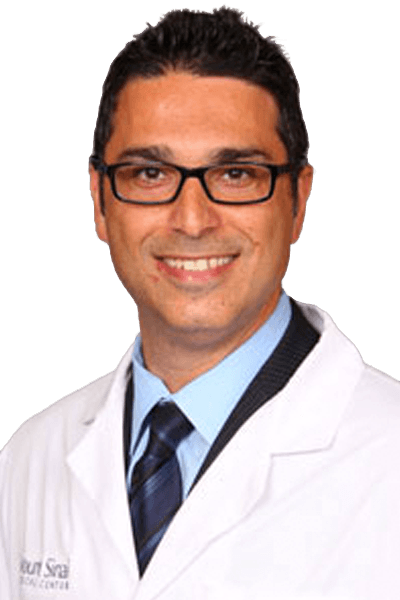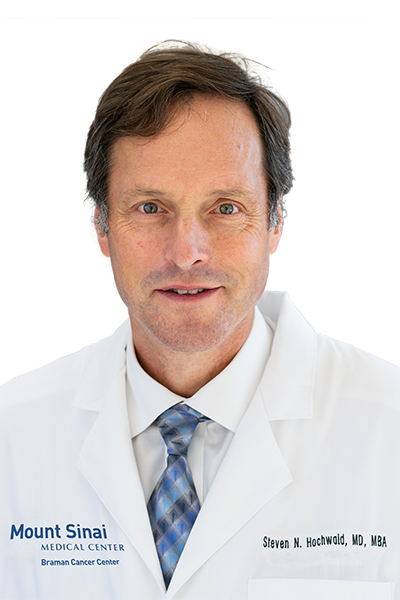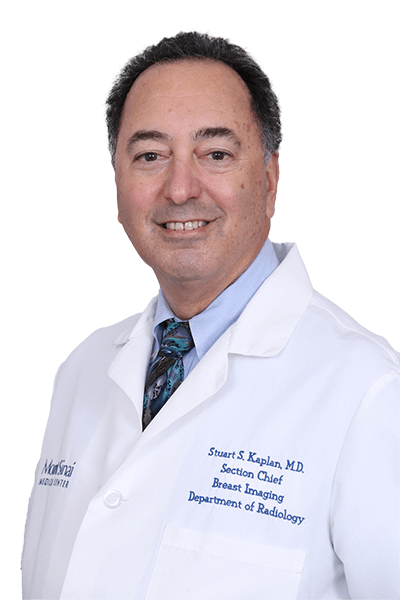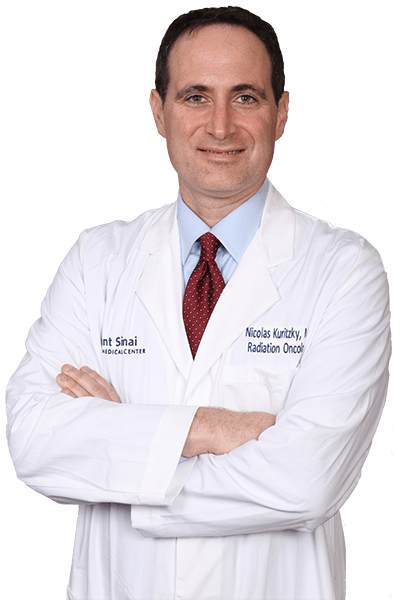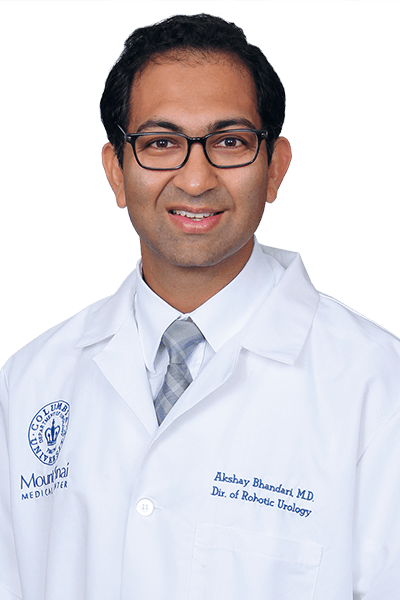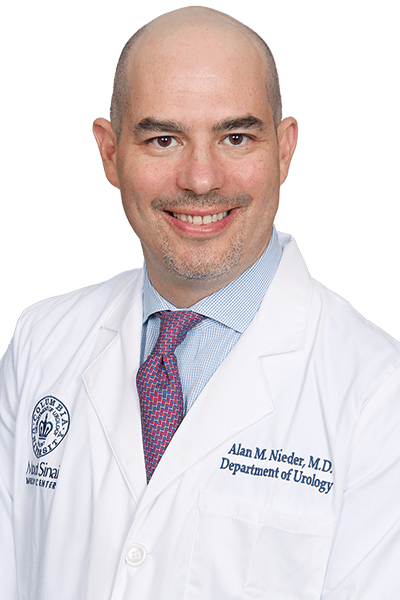Technology & Innovation
Advanced Cancer Care
The past decade has seen monumental progress in the treatment of cancers. As a result, more people are surviving cancer and the overall mortality rate from cancer is declining. This progress has occurred thanks to the combined efforts of thousands of physicians and scientists across the globe, as well as the participation of patients in clinical trials, including patients here at Mount Sinai Medical Center.
Today, many cancers that were thought to be incurable or terminal have treatment approaches that can dramatically improve patients’ chances of survival, improve their quality of life, and extend the length of their lives. Advances in understanding the role of genetics in cancer risk and treatment, along with technological innovation and new drugs that are customized to the individual needs of specific patients, have forever changed the way we treat cancer.
Mount Sinai Medical Center has adopted many of these advancements, and today, our patients benefit from innovative diagnostic and treatment approaches. Patients at Mount Sinai can access these breakthrough treatments without leaving their communities and with the comfort and peace of mind that comes from receiving care at the only Ivy League-affiliated cancer program in South Florida.
Robotic Surgery
Oncology surgeons at Mount Sinai Medical Center regularly utilize robotic-assisted surgery to perform complex procedures using minimally invasive techniques. Robotic assisted surgery relies upon the skill and experience of specially trained surgeons who use the robot to access areas of the body that might not otherwise be accessible with “open” surgery. They use the precise movements of the robot, along with high definition cameras, to perform delicate operations and remove cancer from deep within a patient’s body, often with only a few small incisions that don’t even require stitches.
Today at Mount Sinai, our surgeons use robotic assisted techniques to remove tumors from throughout the body, including the following types of procedures:
- Robotic assisted prostate removal
- Robotic assisted thoracic surgery to remove lung cancer tumors and tumors from other types of cancer that have spread to the lungs
- Robotic assisted gynecologic surgery to remove uterine, ovarian, and other tumors from women’s reproductive organs, as well as robotic-assisted hysterectomies and oophorectomies (removal of the ovaries)
- Robotic-assisted surgeries to remove cancers affecting the gastrointestinal system, including esophageal, gastric, pancreas, liver, and colorectal cancer
Radiation Therapy
For more than a century, cancer treatment has included radiation as an important tool for destroying cancer cells. However, today, we have far more advanced, far more precise, and far more effective radiation therapy technology to better treat patients with a variety of cancers. At Mount Sinai Medical Center, we have a long history of adopting advanced technology for our radiation oncology program. In fact, Mount Sinai’s radiation oncology program is the first in South Florida to receive full accreditation from the American College of Radiology. We use The Trilogy™ system from Varian which, allows our radiation oncologists to use image guided radiation therapy (IGRT), intensity modulation radiotherapy (IMRT), RapidArc (RA) and stereotactic radiosurgery (SRS) to effectively treat patients’ cancers. It represents a major advance in radiation treatment because it has one of the most accurate systems of targeting tumors. As a result, our patients experience fewer side effects and lower complication rates. Moreover, our approach to radiation treatment for cancer uses advanced imaging techniques to precisely locate and map patients’ anatomy, including the size and location of their tumors, and then to deliver radiation treatment with the precision of a surgeon’s scalpel.Interventional Radiology
Interventional radiology offers treatment options for patients facing a variety of cancers without the need for surgery. At Mount Sinai, our team of interventional radiologists treats primary cancers where the cancer originates, as well as metastatic disease, where tumors have spread to other parts of the body.
From applying extreme cold to freeze tumors, to starving tumors from the blood supply that allows them to grow, to inserting radioactive beads to destroy cancer cells, we use interventional radiology as an essential component of Mount Sinai’s integrated, multidisciplinary approach to cancer care. Our interventional radiology treatments include:
- Yttrium-90 (Y90) Radioembolization For Liver Tumors
- Chemoembolization For Liver Tumors
- Bone Tumor Percutaneous Ablation
- Renal Angiomyolipoma Embolization
- Kidney, Liver, and Lung Tumor Percutaneous Microwave and Cryoablation
- Percutaneous Mass Biopsy and Bone Marrow Biopsy
Targeted Therapies
Perhaps the most exciting area of cancer treatment progress has been the development of targeted therapies. These drugs are different than standard chemotherapy in a few ways.
Unlike chemotherapy, which usually attacks all rapidly dividing cells in a patient’s body, targeted therapies act on specific molecules that are important to cancer growth and spread. Targeted therapies don’t always kill cancer cells, but instead, they may simply interfere with cancer cells’ ability to grow or replicate. Because targeted therapies are not necessarily designed to kill cancer cells, they often have far less toxicity and far fewer side effects.
At Mount Sinai, our cancer experts use a variety of targeted therapies to effectively treat different types of cancers. Our growing arsenal of targeted therapies includes the following:
- Hormone therapies, which slow or stop hormone-sensitive tumors from growing. These types of tumors require certain hormones to survive and replicate and are most commonly used to treat patients with breast and prostate cancer.
- Signal transduction inhibitors, which block signals that cancer cells use as part of their replication process. In simple terms, cancer cells don’t have an “off switch” to stop dividing and growing. Signal transduction inhibitors use chemicals to affect how these cancer cells receive information from their environment and ultimately block the signals the cells rely on for replication.
- Apoptosis inducers also work to stop cancer cells from reproducing. These targeted therapies “confuse” cancer cells so that they die in a controlled fashion.
- Anti-angiogenesis drugs block the growth of blood vessels, which are required for tumors to get the blood and nutrients they need to survive. When anti-angiogenesis drugs work, they starve tumors of the blood supply that would otherwise allow the cancer cells to keep growing.
- Immunotherapies work by stimulating a patient’s immune system to attack cancer cells. Much like a vaccine, some immunotherapies rely on the patient’s own disease-fighting defenses by “tagging” cancer cells with molecules that make the cancer cells targets for the immune system. Still, other immunotherapies work by helping the patient’s immune cells more effectively kill cancer cells.
- Monoclonal antibodies are used in immunotherapies, and they’re also used to deliver toxic molecules to cancer cells. The monoclonal antibody attaches to a cancer cell along with another molecule that destroys the cancer cell. Think of it as a bomb attached to a missile. The monoclonal antibody is the missile, and the other molecule is the bomb. And with this type of targeted therapy, only the cancer cells are destroyed.
In addition to these targeted therapies for treating cancer, we also use advanced science to better identify which people may be at higher risk for developing cancer. Through genetic testing, we can determine who carries certain gene mutations that make them more susceptible to developing specific cancers. For example, we know that women and men who have the BRCA1 or BRCA2 gene mutation are much more likely to develop breast cancer, ovarian cancer, or prostate cancer (in men). This type of genetic testing is known as “germline” testing.
We also use genetics to better understand which patients may benefit from certain treatments. This type of testing is called genomic testing, and it examines the genetic makeup of a patient’s tumor to determine how the tumor is different – or mutated – from normal cells. Knowing which mutations are responsible for a patient’s cancer can help us better design treatments and even monitor the presence of disease after treatment by creating tests that measure tumor DNA circulating in a patient’s blood.
Our Physicians
Kfir Ben-David, MD
Roni Jacobson Endowed Chairman of Surgery
Program Director, General Surgery Residency
- Cancer
- General Surgery
- Surgical Oncology
- Robotic Surgery
- Bariatric
- Gastroenterology
- Mount Sinai Medical Center (Main Campus)
- 305.674.2397
Mike Cusnir, MD
Chief, Division of Hematology & Oncology
Co-Director, Gastrointestinal Malignancies
Assistant Professor at the Columbia University Division of Hematology/Oncology at Mount Sinai Medical Center
- Cancer
- Oncology
- Medical Oncology
- Hematology/Oncology
- Mount Sinai Medical Center (Main Campus)
- (305) 535-3300
- Mount Sinai Emergency Center, Physician Offices, Cancer Center and Diagnostic Center Aventura
- (305) 692-5400
Steven N. Hochwald, MD, MBA, FACS
Director of the Comprehensive Cancer Center
Chief of Surgical Oncology
Associate Director of the Mount Sinai-Columbia University affiliation at Mount Sinai Medical Center
- Surgical Oncology
- Cancer
- Esophageal Cancer
- Gastric Cancer
- Pancreatic Cancer
- Liver Cancer
- Metastatic Cancer to Liver
- Gastrointestinal and Endocrine Tumors and Associated Malignancy
- Mount Sinai Medical Center (Main Campus)
- 305.674.2397
Stuart S Kaplan, MD
Chief, Section of Breast Imaging, Breast Ultrasound and MRI, and Breast Interventional Procedures
- Cancer
- Oncology
- Radiology
- Breast Imaging
- Mount Sinai Medical Center (Main Campus)
- 305.674.2121
- Mount Sinai Medical Center (Main Campus)
- 305.535.3400
- Mount Sinai Emergency Center, Physician Offices, Cancer Center and Diagnostic Center Aventura
- 305.692.5400
Akshay Bhandari, MD
Co-Chief, Columbia University Division of Urology at Mount Sinai Medical Center
Director, Robotic Surgery
Assistant Professor at the Columbia University Division of Urology at Mount Sinai Medical Center
- Urology
- Cancer
- Oncology
- Robotic Surgery
- Urologic Oncology
- Mount Sinai Medical Center (Main Campus)
- 305.674.2499
- Mount Sinai Emergency Center, Physician Offices, Cancer Center and Diagnostic Center Aventura
- 305.692.1080
Alan M Nieder, MD
Co-Chief, Columbia University Division of Urology at Mount Sinai Medical Center
Program Director, Urology Residency Program
Associate Professor at the Columbia University Division of Urology at Mount Sinai Medical Center
- Urology
- Cancer
- Oncology
- Urologic Oncology
- Robotic Surgery
- Mount Sinai Medical Center (Main Campus)
- 305.674.2499
- Mount Sinai Emergency Center, Physician Offices, Cancer Center and Diagnostic Center Aventura
- 305.692.1080
- Mount Sinai Specialty Care Key West I Cardiology, Urology & Vascular Care
- 305.294.8334
Irman Forghani, MD, FACMG
Director of Genetics at Mount Sinai Medical Center
- Medical Genetics
- Cancer
- Mount Sinai Medical Center (Main Campus)
- 305.535.1859


